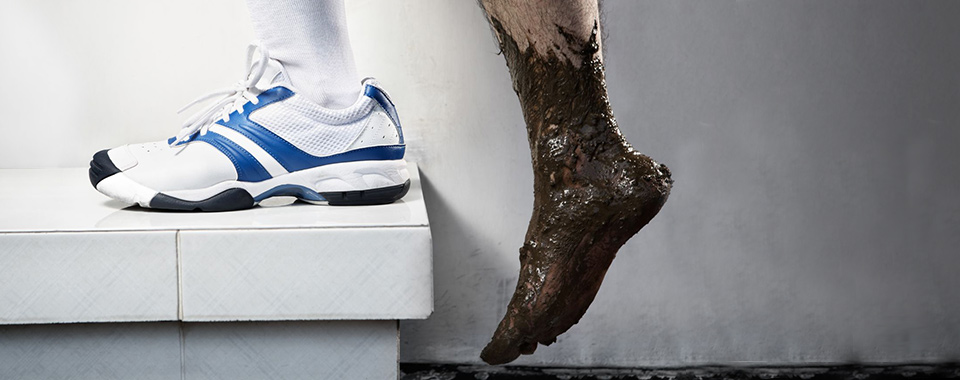As we put our clocks back 1 hour, we prepare ourselves for the impending Autumn. The days are getting shorter and the nights are getting longer. The silver lining to this time of year is the start of winter sports such as netball, rugby and soccer. Athletes young and old take to the outdoors in rain, hail or shine to compete for that winning feeling. Speed, slippery surfaces and a team’s drive to win can also lead to nasty injuries. Even the best in the business get hurt, so what should you do if you do get inured? See your Podiatrist ASAP of course!
The Injured Athlete: How Nutrition Can Improve Recovery
 I attended a seminar with the Auckland branch of Sports Medicine NZ for an evening where practitioners shared their “Clinical Pearls”.
I attended a seminar with the Auckland branch of Sports Medicine NZ for an evening where practitioners shared their “Clinical Pearls”.
Presenter Dane Baker- a sports dietician at the top of his field, caught my attention talking about his role in rehabilitation for the injured athlete. Based on the research reviewed by Kevin Tipton, Dane talked about the importance of protein and nutrient intake when an athlete is in the immobilisation phase of their rehabilitation.
When a serious lower limb injury occurs, the limb is often immobilised in a cast or moon boot. Disuse of the limb results in loss of muscle mass, loss of muscle strength and loss of muscle function. In order to combat this, diet plays a very important role in preserving muscle health, allowing the athlete to return to play quicker.
During the immobilisation phase of injury, despite a decrease in physical activity, the body’s energy expenditure can increase 15% or greater to even 50% for more severe injuries in order for tissues to heal. This means energy intake must increase to avoid muscle atrophy. Increasing the proportion of protein intake each day will improve healing rates and reduce inflammation. Protein intake can be spread evening throughout the day and come from a variety of sources (food and supplements).
Key points to consider:
Are you 1) injured, 2) immobilised, 3) itching to get back to your chosen sport?
If you answered yes to all three, make sure you keep up your protein intake!
For accurate calorie and nutritional advice, see a qualified dietician for the appropriate guidance.
Follow the link to read the full article https://www.ncbi.nlm.nih.gov/pubmed/26553492
